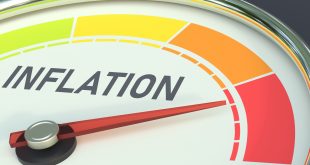The dollar featured mixed performance on Wednesday, as investors struggled to make something out of mostly worrisome headlines. Higher crude oil prices amid escalating tensions between Russia and western nations dented the market’s mood.
Economic Data
The flash estimate of March Eurozone Consumer Confidence dropped to two year low at -18.7 in March from -8.8 the month prior, data from the European Commission on Wednesday showed. That was much steeper than the expected drop to -12.9 and marked the worst such reading since May 2020.
While the data alludes to a larger than expected know to public confidence in the Eurozone as a result of the Ukraine war and its economic impact, the euro has not reacted, with EUR/USD continuing to trade slightly to the south of the 1.1000 level.
European stocks edged lower, weighing on their American counterparts. US indexes trimmed Tuesday’s losses, ending the day with substantial losses.
Other Developments
Secretary of State Antony Blinken announced that the US government formally accused Russian troops of committing war crimes in Ukraine. US President Joe Biden will meet his European NATO counterparts on Thursday, and more sanctions on Moscow are expected to be announced. Leaders will also discuss the Iran nuclear deal.
West Texas Intermediate crude oil surged to $115.37 per barrel, while Brent changed hands at as high as $118.41 a barrel. Gold, on the other hand, advanced within range, posting intraday gains but holding below the weekly high at $1,941.24 an ounce.
US Government bond pared their slumps, which resulted in yields retreating from multi-year highs. The yield on the 10-year US Treasury note peaked at 2.417%, to later shed roughly 10 basis points and hurt the dollar’s demand.
The Sterling was among the worst performers, with GBP/USD falling to 1.3147 on the back of higher UK inflation and the Budget report. According to official data, the Consumer Price Index jumped to 6.2% YoY in February from 5.5% in the previous month.
UK Finance Minister Rishi Sunak presented a new budget, which included upward revisions to inflation and downward revisions to growth. Tax growth expectations were downwardly revised to 3.8% from 6%. GBP/USD hovers around 1.3200 at the time being.
German Chancellor Olaf Scholz announced the country would build its own LNG terminals faster than planned, as bans on Moscow energy could put the region into recession. EU Consumer Confidence plummeted to -18.7 in March, according to preliminary estimates. EUR/USD is barely holding above 1.1000.
Commodity-linked currencies benefited from higher oil and gas prices, also getting a late boost from the strengthening of gold. The AUD/USD pair flirts with the 0.7500 level, while USD/CAD trades near a fresh monthly low of 1.2541.
The USD/JPY pair consolidated gains and settled just above the 121.00 mark, while USD/CHF edged lower, now trading near the 0.9300 figure.
Also Read
US Treasury Yields Ease As Market Ponders Recession Signals
Fred’s Bullard: US economy will continue to grow above trend 2022-2023
Fed’s Mester Sees Need for Some Half-Point Rate Hikes This Year
USD/CAD Remains Firm Amid Russia – Ukraine’s Concerns
WTI touches fresh weekly highs around $114.00
Powell: Digital Currencies Will Require New Regulations
Fed’s Daly: Want to get rates to about 2.5% at least, inflation is top of mind
 Noor Trends News, Technical Analysis, Educational Tools and Recommendations
Noor Trends News, Technical Analysis, Educational Tools and Recommendations





